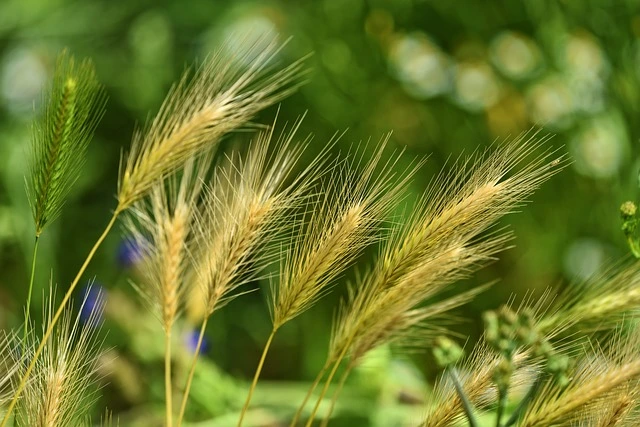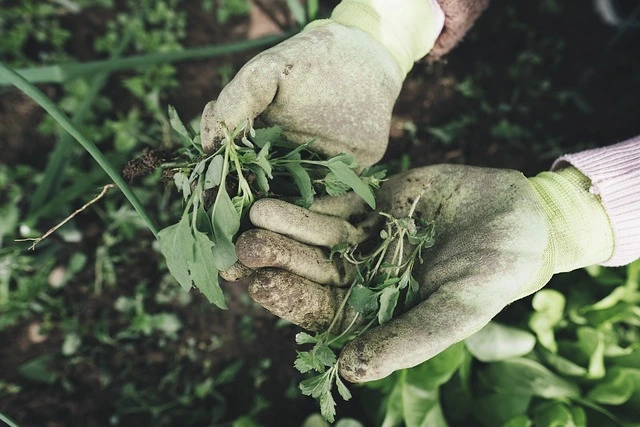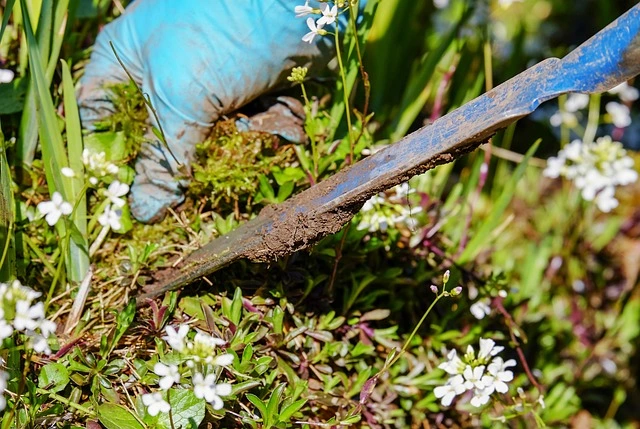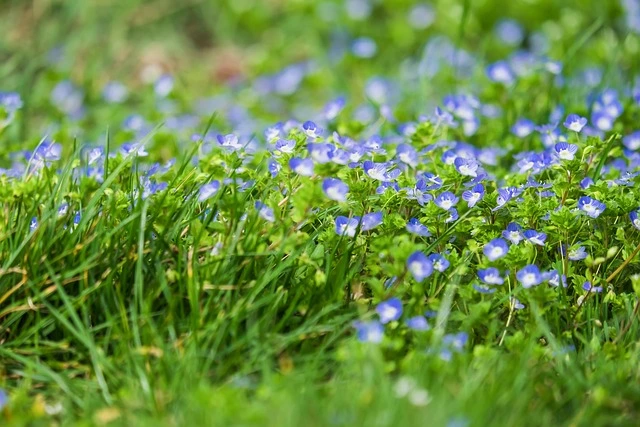Best tips to Control Weeds Naturally in Your Garden in 2024
Weeds can be a persistent problem in any garden, stealing nutrients, water, and sunlight from your prized plants. Using natural methods to control weeds can not only protect the environment but also create a healthier ecosystem for your garden. Here are several proven techniques for keeping weeds in check naturally.

1. Mulching: Your First Line of Defense
Mulch is one of the most effective natural weed barriers. By covering the soil with a thick layer of organic or inorganic material, you block sunlight from reaching weed seeds, preventing them from germinating. Mulch also helps retain soil moisture and improves soil structure as it breaks down.
For more information about Mulching you can read our post:
https://fine-gardening.com/tips-for-using-mulch/
- Organic Mulches: Grass clippings, straw, wood chips, shredded leaves, and compost are excellent organic mulch materials. Spread a 2-3 inch layer around your plants.
- Inorganic Mulches: Materials like landscape fabric or pebbles can also suppress weeds but don’t offer the same soil benefits as organic mulches.
2. Hand Pulling: Get Rid of Weeds Early
It might sound tedious, but hand-pulling weeds while they’re young and before they set seeds is a highly effective natural method. Weeding after a rain or watering makes the job easier, as moist soil allows the roots to come out more cleanly. Be sure to pull the entire root system to prevent the weeds from regrowing.

3. Hoeing: Quick and Efficient
Using a hoe can be a fast way to remove weeds on a larger scale. For best results, use a sharp hoe to slice weeds just below the soil surface, disrupting their growth without disturbing the surrounding soil too much. This method works especially well in vegetable gardens or among annual flowers.

4. Smothering with Newspaper or Cardboard
This is a great method to naturally kill weeds and enhance your soil’s fertility. Lay down several layers of newspaper or cardboard over weed-infested areas, then cover it with mulch or compost. The paper blocks sunlight, eventually killing weeds while breaking down into organic matter. This method is especially useful for starting new garden beds or reviving neglected areas.
5. Vinegar and Natural Herbicides
Vinegar, particularly the stronger horticultural vinegar, can be used as a natural herbicide to kill weeds. Simply spray it directly on unwanted plants on a hot, sunny day. Be cautious with vinegar—it’s non-selective and can harm your desired plants as well.
Other natural herbicides include boiling water and salt. However, use salt sparingly, as it can accumulate in the soil and harm plants over time.
6. Corn Gluten Meal: A Natural Weed Preventer
Corn gluten meal is a by-product of corn processing that acts as a natural pre-emergent herbicide. It doesn’t kill existing weeds, but it can prevent seeds from germinating. Apply it in early spring, before weed seeds have a chance to sprout. This method works well for lawns and flower beds but doesn’t distinguish between weed seeds and other seeds—so avoid using it in areas where you plan to sow desirable plants.
7. Maintain Healthy Soil
Weeds thrive in poor, compacted, or disturbed soil, so keeping your soil in good condition can naturally suppress their growth. Regularly adding compost or organic matter improves soil fertility, making it harder for weeds to establish a foothold.
- Crop Rotation: In vegetable gardens, rotating crops each year can disrupt weed growth patterns, as different crops have different root structures and growth habits.
- Cover Crops: Planting cover crops like clover or buckwheat during the off-season can outcompete weeds and improve soil health by adding nutrients and organic matter.
For more information about Crop Rotation you can consult our post:
https://fine-gardening.com/importance-of-crop-rotation-vegetable-garden/
8. Plant Densely
The more bare soil you leave, the more room weeds have to grow. Planting densely helps shade out weeds and leaves them little space to grow. Ground cover plants like creeping thyme, sweet woodruff, or vinca can also be used to naturally suppress weeds in perennial beds.

9. Flame Weeding
Flame weeding involves using a propane torch to quickly pass over and heat weeds, causing them to wilt and die. This method is effective for annual weeds and works best when weeds are small. Be cautious when using a flame weeder, especially in dry areas where fire risk is higher.
10. Practice Patience and Persistence
Natural weed control methods require consistency. Unlike chemical herbicides, which might give you fast results, natural methods often work more slowly. However, the long-term benefits to your soil, plants, and the environment make it worth the effort.
By using these natural techniques, you can keep your garden looking beautiful while maintaining a healthy, sustainable environment. With a little planning and regular upkeep, you’ll be able to manage weeds naturally and enjoy a thriving, weed-free garden.
Table of Contents
Would you like to explore specific techniques further or focus on particular weeds that are common in the U.S.?

Leave a Reply